Filter by
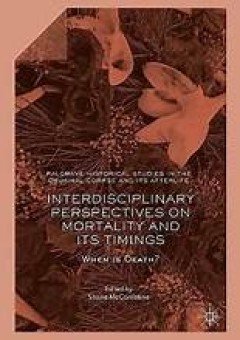
Interdisciplinary Perspectives on Mortality and its Timings
This book is open access under a CC BY 4.0 license. This volume provides a series of illuminating perspectives on the timings of death, through in-depth studies of Shakespearean tragedy, criminal execution, embalming practices, fears of premature burial, rumours of Adolf Hitler’s survival, and the legal concept of brain death. In doing so, it explores a number of questions, including: how …
- Edition
- 1
- ISBN/ISSN
- 978-1-137-58328-4
- Collation
- oer.unej.ac.id
- Series Title
- Palgrave Historical Studies in the Criminal Corpse and its Afterlife
- Call Number
- -

African Futures
The essays in this collection are written to make readers (re)consider what is possible in Africa. The essays shake the tree of received wisdom and received categories, and hone in on the complexities of life under ecological and economic constraints. Yet, throughout this volume, people do not emerge as victims, but rather as inventors, engineers, scientists, planners, writers, artists, and act…
- Edition
- Volume: 27
- ISBN/ISSN
- 9789004471641
- Collation
- -
- Series Title
- -
- Call Number
- -

Africa, the Cradle of Human Diversity: Cultural and Biological Approaches to …
This book explores important chapters of past and recent African history from a multidisciplinary perspective. It covers an extensive time range from the evolution of early humans to the complex cultural and genetic diversity of modern-day populations in Africa. Through a comprehensive list of chapters, the book focuses on different time-periods, geographic regions and cultural and biological a…
- Edition
- Volume: 26
- ISBN/ISSN
- 9789004500228
- Collation
- -
- Series Title
- -
- Call Number
- -

Freud's Dream: A Complete Interdisciplinary Science of Mind
"A Bradford book."OCLC-licensed vendor bibliographic record.
- Edition
- -
- ISBN/ISSN
- 9780262277211
- Collation
- 1 online resource (245 pages) :illustrations
- Series Title
- -
- Call Number
- -
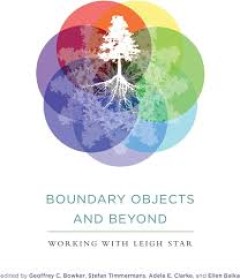
Boundary Objects and Beyond: Working with Leigh Star
Susan Leigh Star (1954--2010) was one of the most influential science studies scholars of the last several decades. In her work, Star highlighted the messy practices of discovering science, asking hard questions about the marginalizing as well as the liberating powers of science and technology. In the landmark work Sorting Things Out, Star and Geoffrey Bowker revealed the social and ethical his…
- Edition
- -
- ISBN/ISSN
- 9780262331012
- Collation
- 1 online resource (1 PDF (ix, 548 pages)).
- Series Title
- -
- Call Number
- -
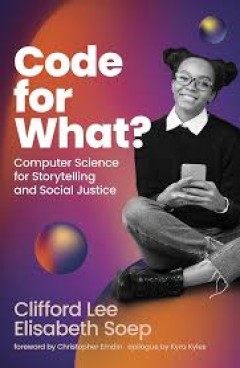
Code for what? :computer science for storytelling and social justice
"Challenges the 'Code for All' movement with a framework for critical computational literacy that integrates computer science with journalism, data, art, civic imagination, and social action"--OCLC-licensed vendor bibliographic record.
- Edition
- -
- ISBN/ISSN
- 9780262371841
- Collation
- 1 online resource
- Series Title
- -
- Call Number
- -
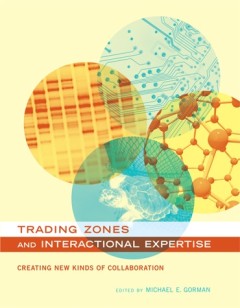
Trading Zones and Interactional Expertise: Creating New Kinds of Collaboration
Cross-disciplinary collaboration increasingly characterizes today's science and engineering research. The problems and opportunities facing society do not come neatly sorted by discipline. Difficulties arise when researchers from disciplines as different as engineering and the humanities work together and find that they speak largely different languages. This book explores a new framework for f…
- Edition
- -
- ISBN/ISSN
- 9780262289436
- Collation
- 1 online resource (viii, 302 pages) :illustrations.
- Series Title
- -
- Call Number
- -
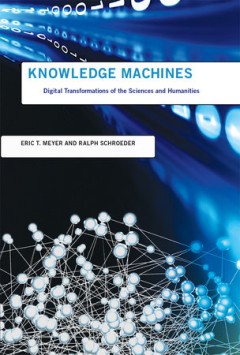
Knowledge Machines: Digital Transformations of the Sciences and Humanities
In Knowledge Machines, Eric Meyer and Ralph Schroeder argue that digital technologies have fundamentally changed research practices in the sciences, social sciences, and humanities. Meyer and Schroeder show that digital tools and data, used collectively and in distributed mode -- which they term e-research -- have transformed not just the consumption of knowledge but also the production of know…
- Edition
- -
- ISBN/ISSN
- 9780262328180
- Collation
- 1 online resource (x, 271 pages) :illustrations.
- Series Title
- -
- Call Number
- -
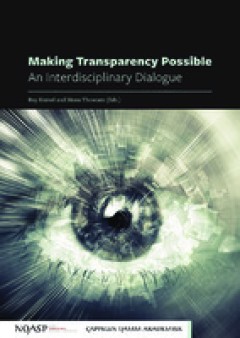
Making Transparency Possible: An Interdisciplinary Dialogue
Each year local and national economies throughout the world lose billions of dollars through so-called illicit financial flows. Conservative estimates indicate that over a billion dollars are diverted illegitimately out of countries in the Southern Hemisphere every year. This diversion of revenue reinforces poverty while facilitating the concentration of authority in the hands a select few thro…
- Edition
- Ed. 1
- ISBN/ISSN
- 9788202637309
- Collation
- 323
- Series Title
- -
- Call Number
- 302.2 MAK m
 Computer Science, Information & General Works
Computer Science, Information & General Works  Philosophy & Psychology
Philosophy & Psychology  Religion
Religion  Social Sciences
Social Sciences  Language
Language  Pure Science
Pure Science  Applied Sciences
Applied Sciences  Art & Recreation
Art & Recreation  Literature
Literature  History & Geography
History & Geography